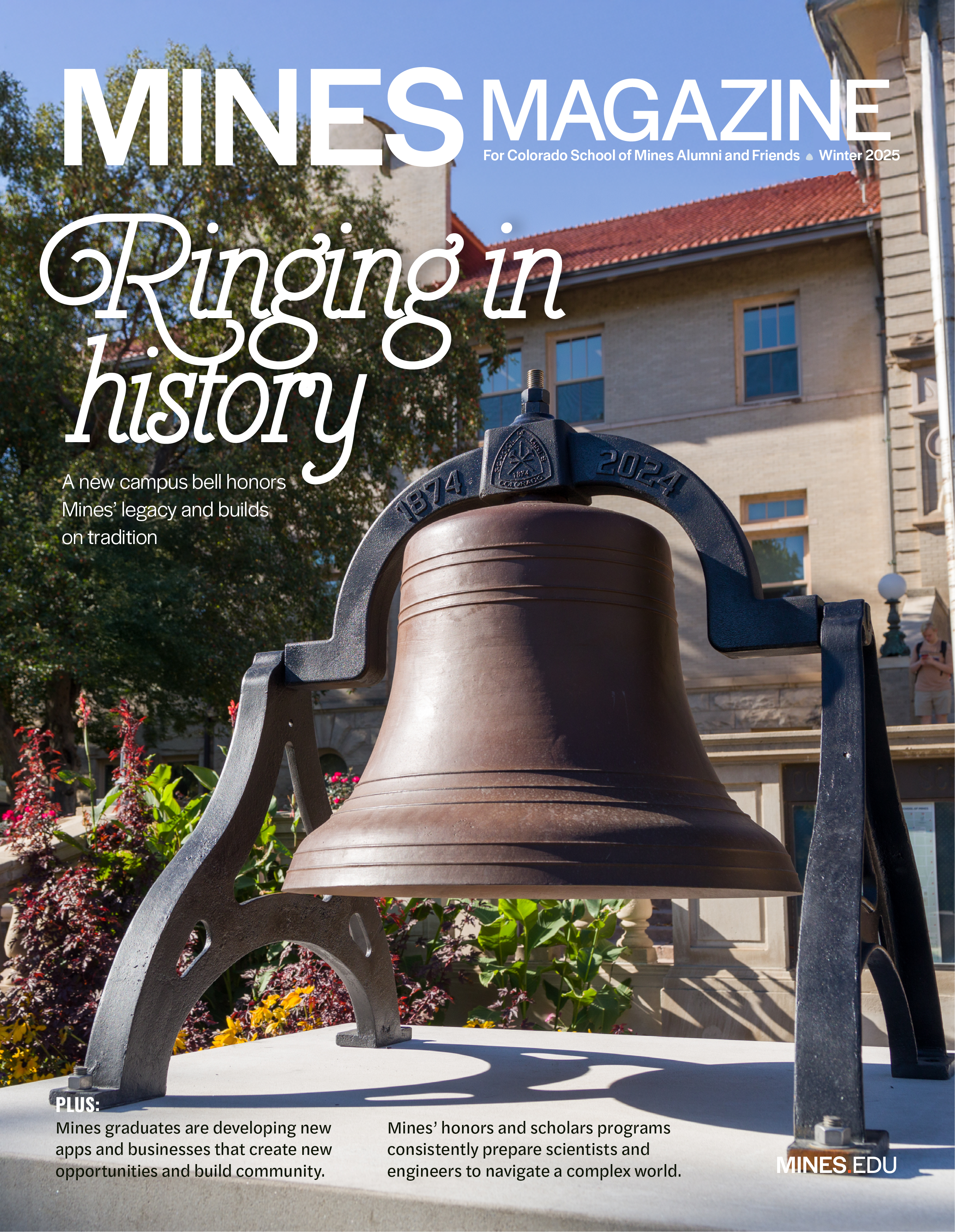From discovery to decision-making

Science and engineering research often drives solutions to the world’s most pressing challenges, but ensuring those solutions are effectively integrated into society is key to creating meaningful change. The Colorado Science and Engineering Policy Fellowship (CSEPF) provides undergraduate and graduate students—including those from Mines— with a unique opportunity to bridge the gap between technical expertise and public policy by engaging directly with real-world issues.
Each year, Mines sponsors a small group of students to participate in CSEPF, immersing them in the legislative process and connecting them with policymakers. Through hands-on experience, students gain invaluable insights into decisions that impact energy, sustainability and technological innovation. The fellowship not only equips them with the tools to advocate for evidence-based policies but also positions them as leaders ready to influence the future of science-driven governance—a critical step toward addressing the complex issues of our time.
Makenna Straka, a Mines undergraduate student studying quantitative biosciences and engineering, participated in the fellowship in summer 2024. We asked her about her experience, what she learned and how the fellowship has shaped her future career.
Mines Magazine: What motivated you to participate in CSEPF?
Makenna Straka: My interest in CSEPF was initially driven by a desire to translate the science I’m passionate about into a tangible, real-world solution. I really value an interdisciplinary education and want to go to law school after undergrad, so the fellowship seemed like a great fit for me.
MM: Can you share an example of a policy issue/project you worked on during the fellowship?
Straka: My policy was a tax incentive and loan guarantee program for investors and businesses in the precision fermentation space. Precision fermentation is a process that produces proteins from plants that are bioidentical to animal proteins. When scaled up, these operations are incredibly cost effective and have potential to have a profound stabilizing effect on the food supply.
MM: What was the most valuable thing you learned about the policymaking process?
Straka: The most valuable lesson I learned from this process was that state government is well within the reach of influence for every citizen. In speaking with senators, I was surprised how many of their bill ideas were directly sparked from constituent communications. Even though government can seem intimidating and untouchable, it’s much more accessible than I could ever have imagined.
MM: Why do you think it’s important for engineers and scientists to be involved in shaping policy?
Straka: Without policy, it’s hard to move science forward in a tangible way. Scientists and engineers need to be more involved in policy so that discoveries turn into solutions. Policy is one of the most powerful tools we must use to make changes, and we need science-informed change more than ever.





